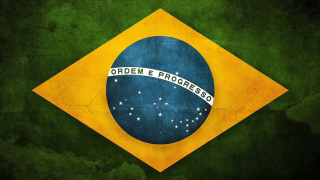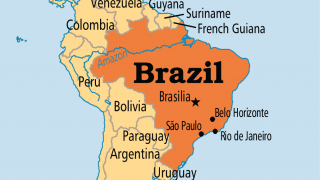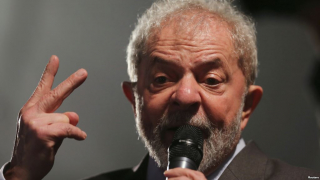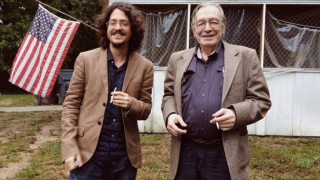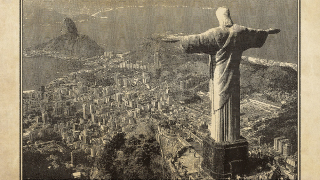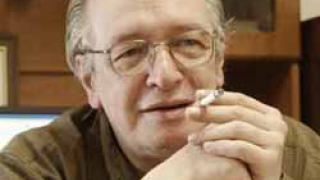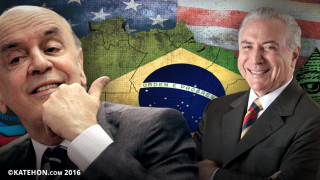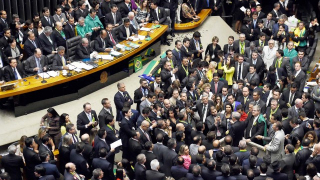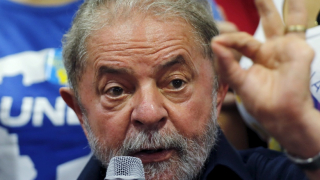Brazil elections: the "Market" candidate VS geopolitical disaster
Interview with political analyst from Brazil Raphael Machado.
- How can you describe the current political situation in Brazil? Can the next elections seriously change state of things? Is it ideological battle or something else? Who is the most predictable winner?
R. M.: The current political situation in Brazil is chaotic. This election has the biggest number of presidential candidates since 1989. The country is now extremely fragmented, the climate is almost one of pre-Civil War, like Spain just before 1936. For 30 years the country has been monopolized by three parties, that we can call the "establishment parties", the Social-Democratic Brazilian Party (PSDB), the Brazilian Democratic Mobilization (MDB) and the Worker's Party (PT); these parties represent different factions of the Brazilian elite, the urban business elite, the oligarchic elite, the urban intellectual progressist elite, respectively.
Though from the finance-banking point-of-view they're all acceptable members of the establishment. They have all governed for big banking, foreign interests and George Soros. But now, the population is more or less tired of these parties. The number of people who either don't have a favorite candidate or who won't vote has never been bigger. And the popular aversion for the three big parties is huge. That's why some candidates are trying to win the elections with an anti-establishment speech (some of them sincere, some of them just simulacra).
Brazil is now divided between left and right, the left represented by Worker's Party member Haddad, Lula's puppet-candidate and Social Liberal Party member Bolsonaro, and the masses fanatically insist in the reality of this battle, eventhough both candidates don't really talk about the major problems and concerns of the Brazilian situation. The left accuses the right of being fascist and the right accuses the left of being communist. And their followers wholeheartedly believe in it. It's a pure simulacrum of ideological battle, since both candidates stand on the limits of post-liberal discourse, Bolsonaro being a neocon and Haddad being a neoliberal. Both candidates are hated so much by millions of Brazilians that whenever one of them rises in the polls, the other rises too. Both of them are the most predictable winners. Any of them could win. But in any case Brazil's future will be tragic.

Bolsonaro. Photo - Wikipedia
Bolsonaro's staff is radically antipatriotic and economically liberal. The military officers who support him have the same crazy "red scare" mentality of the 60s military who staged a coup to "save Brazil from communism". The promise to cut worker's rights, sell all State businesses (including Petrobras), support Israel and promise to follow the US in everything, including supporting an invasion of Venezuela.
On the other hand, Haddad has promised not to overturn any of the neoliberal reforms of Temer's government, he has also indicated that he'll compose a government with the other establishment parties, even the right-wing, just to block Bolsonaro and all other populists. Haddad is an academic bourgeois who wants to turn Brazil into Sweden, being pro-gay, pro-queer, pro-abortion and also economically liberal, just not as much as Bolsonaro. Also, both of them are Soros' candidates. Haddad is supported by all Soros-connected NGOs and Bolsonaro's major economic advisor is the banker (from BTG Pactual) who manages Soros' interests and businesses in Brazil. So, putting all together, the future doesn't look good.

Haddad. Photo - Wikimedia commons.
- Jair Bolsonaro. From outside he is viewed as a populist who surfs the wave similar to the one that brought Donald Trump to the White House and resulted in Europe in the rise of right and left wing populism. Is that appreciation true? Why is he supported and by whom?
R. M.: This appreciation is more or less correct, but up to a point. He's a populist who surfs the wave of anti-leftism, specially because the population is tired of pro-gay, pro-abortion, pro-queer, anti-gun, etc. legislation and is willing to vote for basically anyone who denounces all of this. On the other hand, most of the candidates recognized by mass media around the world as populists are in some kind of sense patriotic politicians who wish to fight against the worst economic and social consequences of globalism and post-liberalism. Most of them are, for example, against free trade and defend economic protectionism.
Bolsonaro isn't at all like that. He was a real populist in the 90s, but he was already controlled and sold off years before these current elections. He's just against moral liberalism and that's it. It stops at that. In everything else he's as globalist and liberal as any other establishment politician. He hates Venezuela and Cuba, and is very influenced by the Brazilian pseudo-philosopher and esoteric cult leader Olavo de Carvalho, who is extremely Russophobic and blames Russia for all the problems in the world. Geopolitically, Bolsonaro is a disaster. His popular support comes from the middle class, which is extremely tired of leftist discourse, but which hasn't really stopped to reflect on the fact that Bolsonaro's platform will also hurt it.
- Can the next elections change the geopolitical course of the country?
R. M.: Haddad, if he wins, would more or less keep Brazil neutral on most affairs and continue with the current geopolitical course, which isn't really good. Haddad could be compared to Macron, he's the "Market" candidate, the favorite of the bankers. The Worker's Party isn't really interested in multipolarity, just in elevating Brazil's status in the unipolar-atlanticist world. If Bolsonaro wins, though, major changes could ensue. He's close to evangelical zionists and has promised support for Israel (even promising to fight against anti-zionist historical revisionism), his vice-president has claimed in television that the Brazilian armed forces would participate in a military intervention in Venezuela.
He has promised to sever ties with Mercosul, and could probably do the same with BRICS. He's extremely atlanticist and a willing lackey of US interests. He's not the Market-Banking favorite just because he's extremely chaotic, psychotic and unstable, therefore he isn't a "safe bet" for the international elites, who prefer a more stable candidate like Haddad.
- Can the forthcoming elections make society more unified or more fragmented?
R. M.: If any of both favorite candidates win, our society will end up more fragmented. Anti-leftists and leftists are moved by hate for each other. They grow whenever the other side grows. Our society could be put in a civil war course if any of them wins, and as the situation becomes more and more chaotic, the fear of another military coup (or at least a coup attempt) grows. Our only hope would be for a third candidate, a sincere patriotic populist to win.
At this moment, the third in the polls, Ciro Gomes, from the Labour Democratic Party (PDT, which was Brizola's party, Getulio Vargas' political heir) could unify the country again. He's not compromised with leftist liberal progressist cultural agenda and he's also an economic nationalist. His voters come from the left, the right and the center and he isn't hated by the population, though he's the most hated candidate by our mass media, the "Market", big businesses and banking interests. But the capture of these elections by the pseudo-ideological battle between left liberals (identified by their enemies as communists) and right liberals (identifies by their enemies as fascist), which receives all the focus from the media, has made him stagnate on the polls. He's now at 10-13% and has not been growing for weeks.
There are also some other, small, candidates which are sincere nationalists and populists, like the military fireman Daciolo, who defends a kind of "mystic socialism", João Goulart Filho, son of the late nationalist president João Goulart (who suffered the military coup in 1964) and Eymael, a "christian democracy" candidate who unifies a social-democratic economic platform with a conservative moral position. But these three smaller candidates have each of them only 1-2%. So, in essence, further social and political fragmentation of the country is almost inevitable.


